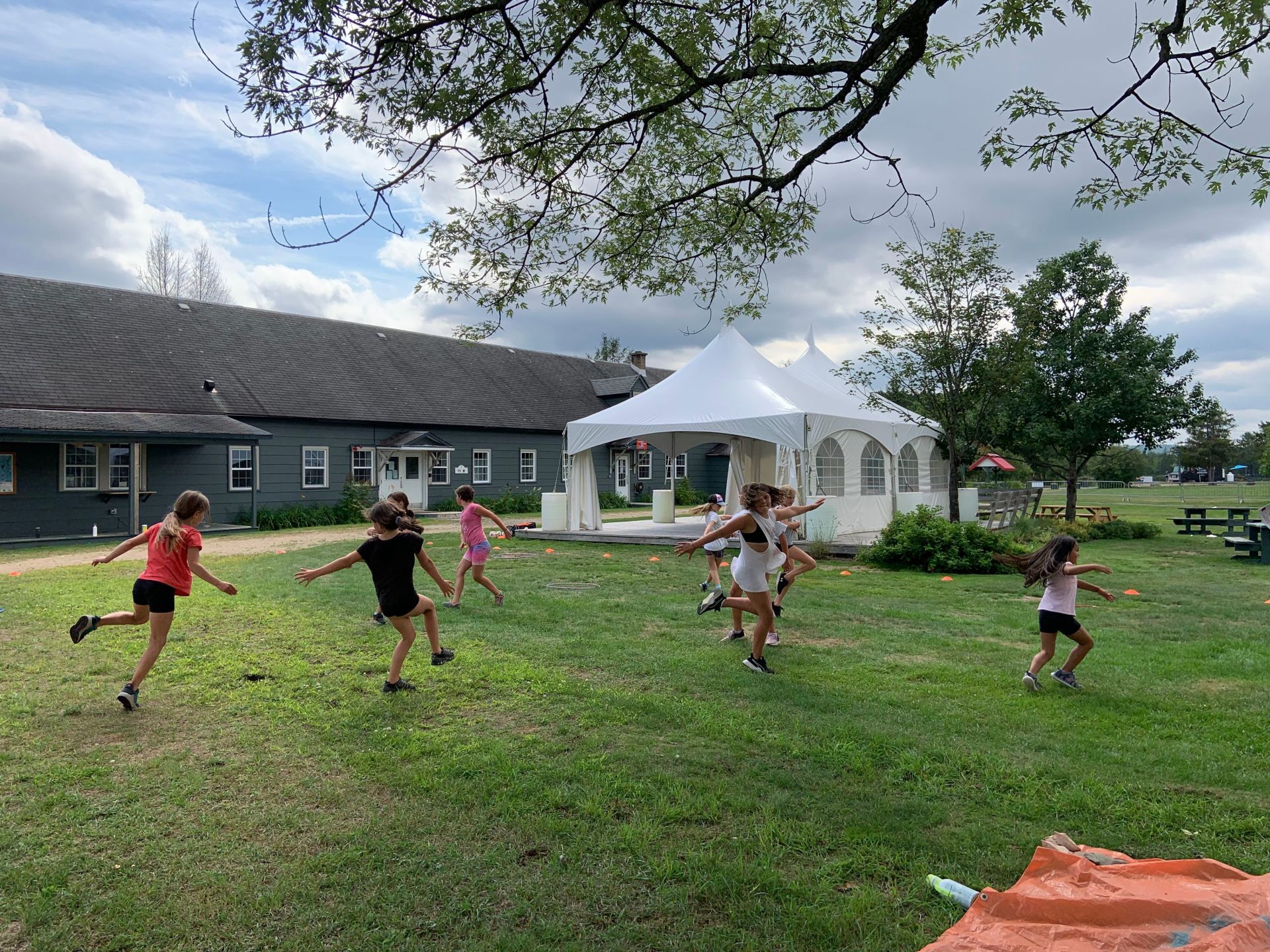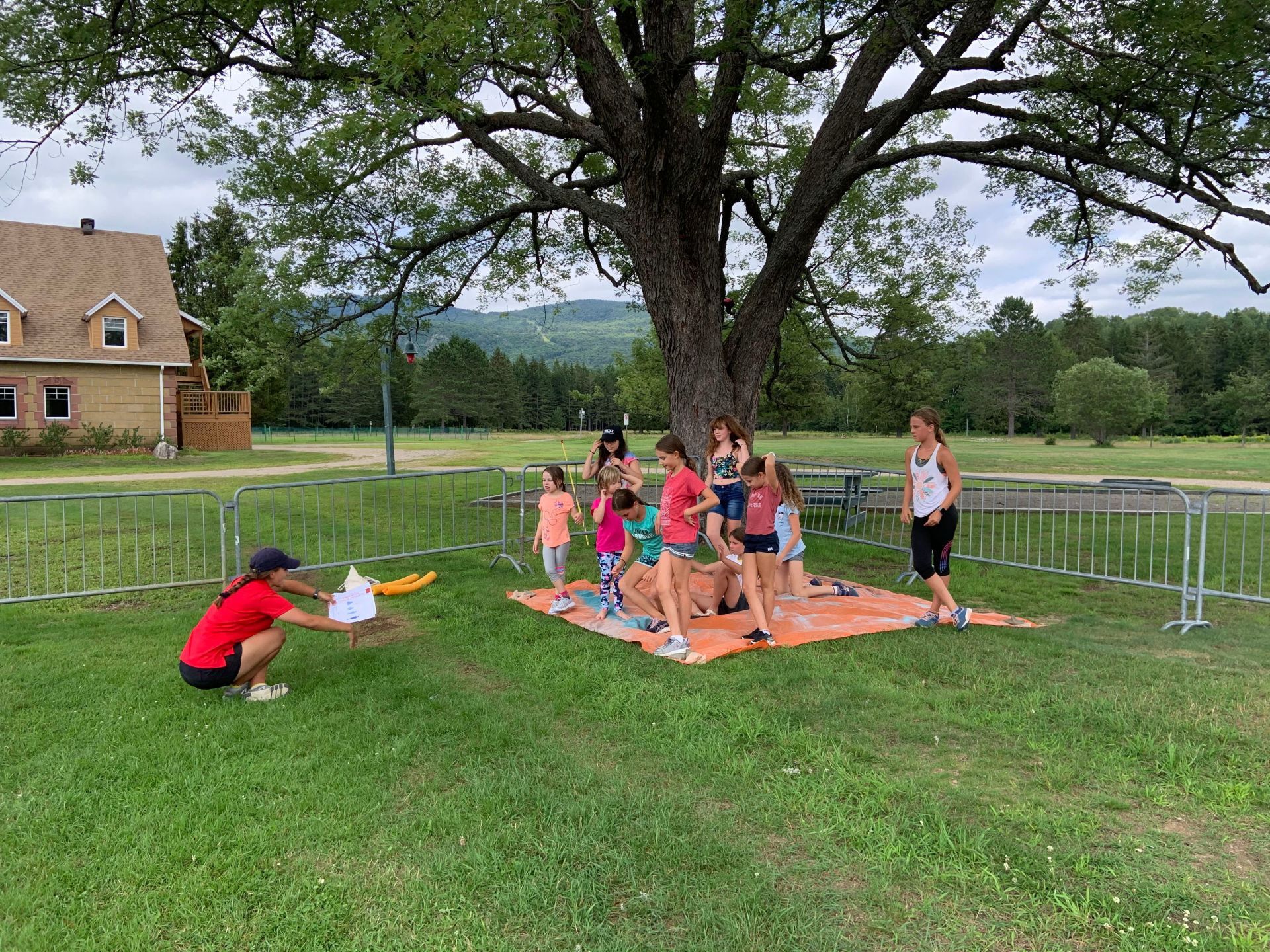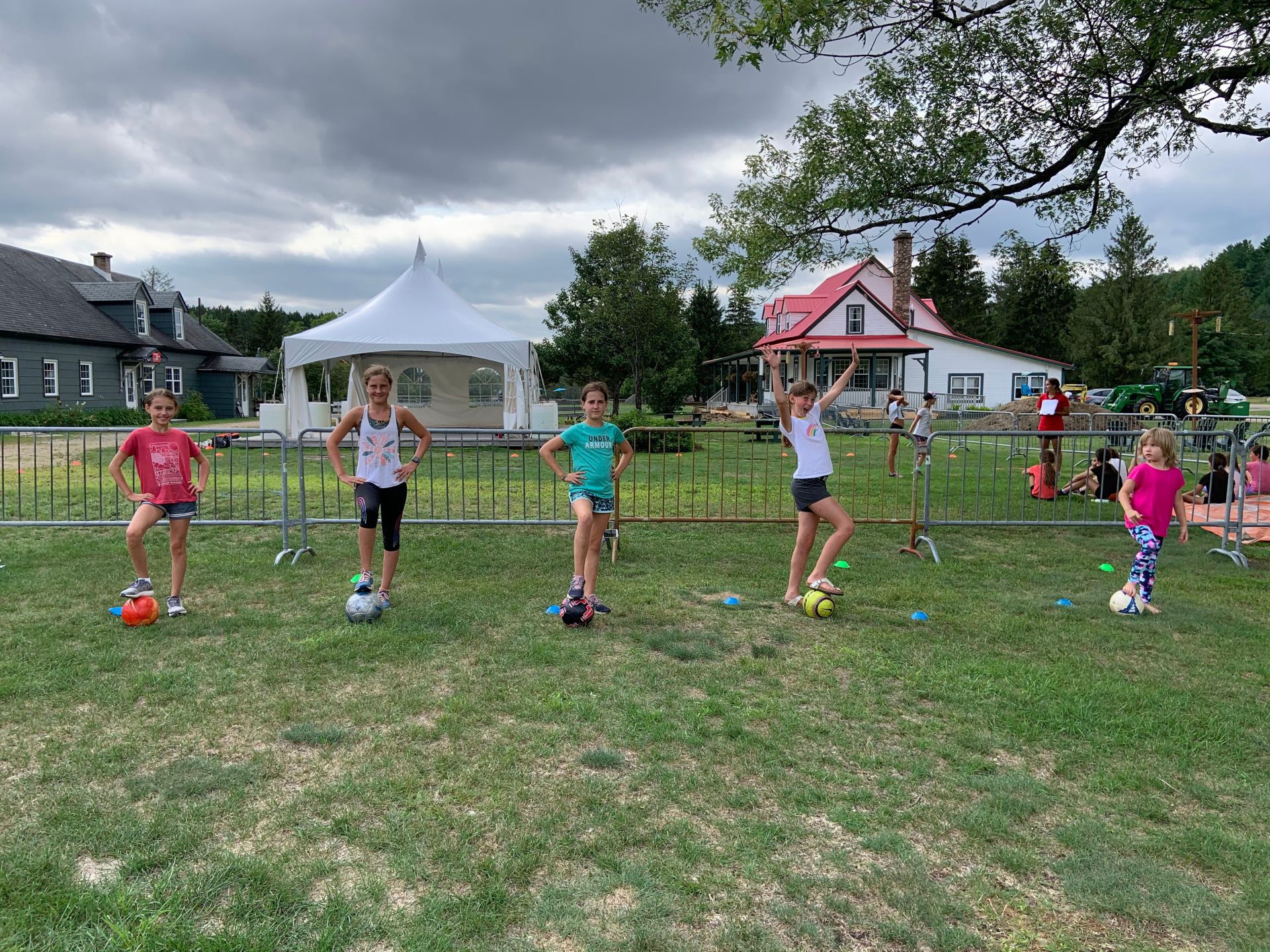Building Confidence Through Physical Literacy in Young Girls
Earlier this month, our team had the opportunity to visit Camp Confidanse for the day in Mont Tremblant. It is a one-week camp exclusively for girls and focuses on esteem, health and expression. The founder, Michelle Brownlee, who owns a non-profit dance studio in the area, started this camp three years ago. “I had this idea when I started to teach, and over the years, I noticed young children’s confidence and how low it was.” Michelle decided to develop a camp for girls only to help them feel good about themselves by trying various skills, hopefully preparing them for anything coming their way.
Our day at Camp Confidanse.
The camp's activities include dance, yoga, self-defence, nutrition, and art and feature some outside guests. We were fortunate to be one of these guests for the third year. We started the day by doing a warm-up with the girls and then split them into three movement groups; balance, locomotion and object manipulation. At each station, we practiced skills, performed challenges and then played a game. Seeing the girls quickly pick up on the skills and challenge themselves was amazing. After the girls had passed through all the stations, we split them into smaller groups and had them create a dance routine incorporating some of the skills they had learned. To conclude the day, the girls taught us some dance moves! We had so much fun and shared so many laughs with these girls. You can check out the vlog we created to capture this wonderful day.
Physical literacy is the motivation, confidence, physical competence, knowledge and understanding to value and take responsibility for engagement in physical activities for life. At Champions for Life, we recognize how crucial it is to build confidence in young children. Since Camp Confidanse is a girls-only camp with the theme of "girl power," we will focus on building confidence in young girls in this post. A recent survey found that between the ages of 8 and 14, girls' confidence levels dropped by 30%.
Girls are dropping out of sport participation at alarming rates.
By age 14, twice as many girls drop out of sports as boys. While each situation is individual, much of this may be attributed to a need for more confidence. They may feel as though they aren’t good enough, are paralyzed by the fear of failure and feel uncomfortable in their changing bodies, and are therefore less likely to participate in organized sport. This is unfortunate because sports and physical activity have contributed significantly to building confidence and providing girls with valuable life skills. According to the Play Like a Girl organization, “the strong connections made through sport help girls discover positive ways to combat emotional pressures.”
How can we encourage young girls to be more active?
If we can teach young girls basic skills in movement: running, jumping, throwing, and balance, they are more likely to feel confident in pursuing sports and physical activity later in life. One of the best ways to ensure your daughter is learning physical literacy is to have it start in her own home. Did you know that the family unit significantly impacts a child’s physical activity levels? Take your kids cross-country skiing on winter weekends, incorporate active transportation into your family routine and take a break from homework to have a 5-minute dance party. We recognize that these ideas may not be feasible for every family; the goal is to make the physical activity fun and part of your routine rather than a chore. Check out this post if you’re looking for more ideas on incorporating physical literacy into your family routine.
Tips for helping tween & teen girls to be more active.
If your daughter is already in her teenage years, you may notice a more significant lack of confidence. If she’s already involved in sports, try to reinforce that positively and be a part of the experience with her. Show up to watch her games, practice with her at home, watch sporting events together and keep the conversation going on how she’s feeling about her sport and the opportunities staying active and involved in sport will give her. If your daughter is not physically active, try encouraging and motivating them by being a positive role model and planning to do something active together! Whether going for a nature hike, a bike ride, a yoga class at your local gym or a set of dumbbells in the basement, being active with someone is always more fun! Girls aged 12-17 should get 60 minutes of moderate- to vigorous-intensity movement daily. But even light physical activity has been shown to improve mental health. There are many ways to be active; it takes time, effort and sometimes a little motivation!
Not only does physical literacy relate to physical health, but it also plays a vital role in mental health. If we can teach children fundamental movement skills, they are more likely to feel confident in their abilities and pursue being active long-term. Both the confidence gained and the maintenance of an active lifestyle will help to contribute to better mental health. This is why we love building physical literacy in children and are grateful for organizations like Camp Confidanse, who help do the same.









